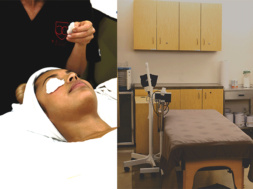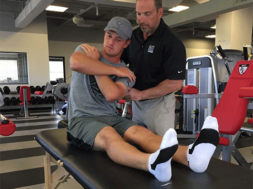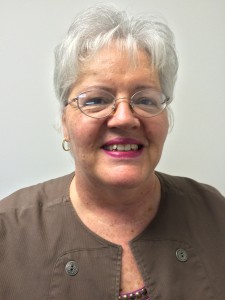
By Christine Sproles, MSN, RN, Assistant Dean of Nursing and Nursing Instructor, Fortis Institute, Pensacola, Florida
Identifying a need
As most everyone is aware, nurses are the last defense for a patient in regards to safe medication administration. An error can occur anywhere in the medication process from the ordering, transcribing, procuring, dispensing, and administering of a medication. But it is up to the nurse – the one administering the medication – to be alert to catch any mistake before the patient receives the medication. There is much documentation in the current literature and from various nursing organizations regarding medication errors and ways to help prevent these errors. The Joint Commission, Quality and Safety Education for Nurses, National League for Nursing, Institute for Safe Medication Practices – to name a few.
As a school of nursing, one of our main goals is to prepare graduate nurses who will be safe clinicians.
Safety falls into many categories, but one that has been in the headlines recently is preventing medication errors!
We read or hear in the news over and over again about an individual who was harmed because he/she received the wrong medication, the wrong dosage, or even the wrong treatment. Because safe practice is such an important issue in healthcare, the faculty and administration at Fortis Institute in Pensacola developed a Math for Success program. A committee was formed to develop the program – policy and procedure. The whole purpose of the Math for Success program was to ensure that our student nurses could calculate medication dosages with 100 percent accuracy! This was incorporated into our curriculum in 2013 and has been modified slightly over the years. However, the goal has remained unchanged – safe medication dosage calculations!
How does it work?
The program started with five phases where each core nursing course administered a Math for Success quiz. The quiz consists of 10 questions or grouping of questions dealing with household and metric conversions (changing ounces to milliliters, cups to ounces to milliliters, pounds to kilograms, etc.), reading and interpreting labels, determining correct technique for reconstituting medications, preparing medications for injection (intramuscular, subcutaneous, and intravenous), calculating dosages based upon a client’s weight, and so on.
The students receive information about Math for Success in their Health Assessment class, which is the first nursing class prior to taking a clinical course (one that requires students to attend clinical and administer medications to clients/patients). The policy and procedure for Math for Success states that students will be given information about the upcoming math quiz in week 9 of a 12-week term. For example, if the quiz requires calculations based upon weight, that will be reviewed with the students in the term prior. They will be given resources to review to help them prepare for that quiz. For those students entering the nursing clinical courses for the first time, they receive this information in week 9 in Health Assessment. As the Pharmacology instructor, I go to their class and give a presentation on the Math for Success Program, provide them with handouts to study and review, go over simple dosage calculations with them with helpful hints and strategies for moving the decimal correctly, and even give them a sample quiz so that they know what to expect in the subsequent term.
Each term new information is added to the Math for Success quiz. In the first term, basic conversions and dosage calculations are covered. In the second term, reading of labels, reconstituting medications, and IV calculations and drip rates are added, and so on. Each quiz builds on the previous information and adds new information so that by the time the students are in their senior term, they are being quizzed over all of the dosage calculation concepts.
The Math for Success policy states that students must pass the quiz with 100 percent accuracy. If that seems harsh, ask yourself this – “Do I want a nurse preparing medications for me or my family that is accurate only 90 percent of the time?”
I know I don’t! Students are given three opportunities to pass the quiz with a 100 percent. The quizzes are administered a week apart. Each quiz is just a revision of the previous one. For example, if the quiz requires reading labels, the labels would be changed. If the quiz includes conversions, the numbers are changed – the concepts remain the same. There are no surprises! We want the students to be successful.
If a student is not successful after the second attempt, they are referred to the Math instructor and must receive tutoring prior to their third attempt. Again, our goal is for the students to be successful. We provide them with every available resource to learn and practice the necessary dosage calculations prior to taking the quizzes. A very good resource that I provide the students in Pharmacology is DosageHelp.com. This is a free resource that offers all types of dosage problems for practicing. The website provides a tutorial and answers with rationale for all dosage calculation problems. Students can even request a “question of the day,” which is emailed to the student. They can choose the topic they want, and each day a new problem will be sent to them. If they want to do more than that one problem, the link allows them to click on more. It is fast and simple.
As I said earlier, students are allowed three attempts to pass their math quiz with 100 percent accuracy. If after three attempts they are unsuccessful, the students are not allowed to administer medications in the clinical setting (hospital, nursing home, physician’s office, etc.). An obvious learning objective for nursing students in clinical is that they are able to administer medications. If they cannot, they will not meet their objectives and will, therefore, not pass their clinical experience. This is a pass/fail component of each nursing course. Therefore, failure to administer medications at clinical will result in failure of the individual nursing course.
With all of that said, the faculty do everything they can to assist the students with their success. Nursing instructors offer tutoring sessions. We refer the students to the Math instructor. Textbook resources and online resources are provided to the students. Instructors will meet with the students one-on-one. Again, our goal here at Fortis is to graduate safe clinicians. We WANT the students to succeed! But we also want to ensure that those who leave our institution are safe. Everyone makes mistakes, but the purpose of our Math for Success Program is to help reduce the chance that those mistakes are made due to an error in dosage calculation.
Results
As a clinical instructor for our Foundations nursing students (first level nursing), I had the opportunity to see in action how effective our Math for Success Program is. I was observing a student at one of our local acute care hospitals as she was preparing to administer medications to her patient. One of the staff nurses approached her with a medication administration record (MAR) in one hand and a container of medication in the other hand. She handed them both to the student and asked her to calculate how much of the medication she should administer. Within seconds the student had the answer. The nurse was astounded and said, “How did you do that so fast?!” The student very simply replied, “Because we do dosage calculations and math all the time.” Which we do! But the fact that she was so comfortable with the process and was able to arrive at the correct answer so quickly was very reassuring to me that our program does work! The stress of the hospital environment, the speed at which many things have to be done, the distractions that occur, all affect the nurse’s ability to concentrate, to focus, to calculate correctly. Little mistakes can so easily be made just because a nurse is tired or distracted.
We teach our students how to do the “six rights” of safe medication administration, and one of those “rights” is the right dose. The Math for Success Program helps ensure that our students will be preparing the right dose and will reduce the chance of error.
We can’t be there when our students become nurses and work out in the community. We can’t be there giving them direction and advice – stopping them before they give the patient the wrong dose. But hopefully we have prepared them and given them the necessary tools to do what they need to do to safely administer medications to their clients/patients.
CHRISTINE SPROLES is the Assistant Dean of nursing and a nursing instructor at Fortis Institute in Pensacola, Florida. She has been an educator for more than 30 years, teaching courses in medical office administration and nursing.
During her time at Fortis, Christine has developed a means to motivate her students and increase morale along with a Math for Success program to help students progress in math skills throughout their program. Realizing a need to improve performance in her pharmacology course, she performed a gap analysis using HESI specialty exams to identify content areas where students scored low and executed a plan to boost student outcomes. The results were positive with mean scores and student satisfaction increasing significantly.
Christine is an active faculty member at Fortis Institute performing functions such as assisting faculty members with lesson objective development using appropriate cognitive levels and serving on a subcommittee to revise clinical skills requirements. She is chairperson for the Evaluation and Outcomes Committee for the nursing program at Fortis.
Recognized for her commitment to nursing education, she received the Five-Star Faculty award from Fortis Institute in 2014 and the Outstanding Teacher Award from Pensacola Christian College in 2002. Christine received the 2015 Master Teacher Award at the 12th Annual National Conference on Allied Health Education by ABHES and Elsevier.
Christine has been a break-out session speaker at several nursing and allied health conferences nationally, speaking on topics related to student success. She also serves as a reviewer for textbooks, such as McGraw-Hill, Pearson, and Davis.
She earned her Bachelor of Science in Nursing from Pensacola Christian College in Pensacola, Florida. She furthered her education and received a Master of Science in Nursing from the University of Portland in Portland, Oregon.
Contact Information: Christine Sproles, MSN, RN // Assistant Dean of Nursing and Nursing Instructor // Fortis Institute //4081 E. Olive Road, Suite B, Pensacola, FL 32514 // 850-476-7607 // CSproles@fortisinstitute.edu











